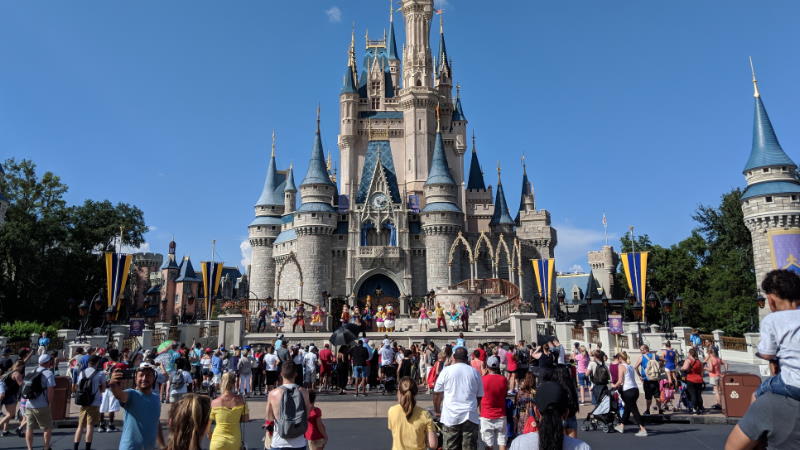Have you ever heard, or maybe even been a part of, a debate over which park is better, Disney or Universal? If you’re a big theme park fan, the answer is most likely yes.
The parks might actually benefit from this. Let’s discuss why that is.
You may have never stopped to think about it, but theme parks are given that name for a reason. They have a main theme that unifies all the shops, shows, and attractions they hold. The themes are apparent in the visual, musical, and physical structures of the park. Every performance and costume, every ride and attraction, and every building facade and food stand is staged and designed to fit a theme, and to both set and meet expectations in visitors’ minds. The biggest parks even have individually themed lands within their parks, like Fantasyland or Diagon Alley, and individually themed parks within their resorts, like how Animal Kingdom and Magic Kingdom are within the Disney World Resort. It’s theme-ception.
Understanding the influence of these themes and how they affect the management and economic outcomes of the parks is no small feat. In fact, there’s a whole science behind it. Entire university departments and scholarly journals do nothing but teach, study, and share new knowledge about how tourist attractions like theme parks design and market their businesses
As we consider this, let’s now bring in the words in the title of this article into play, “flagshipness” and “iconicity”. While not new, these are just emerging as important concepts in understanding the tourist and theme park business.
You’re probably familiar with the concept of a flagship store or iconic brand. Macy’s on West 34th St or Tiffany’s on Fifth Ave in New York are flagship locations. Google is an iconic search engine brand, so iconic it has become synonymous with the term “search engine”. These are things theme parks like Disney and Universal have already achieved. Each has flagship locations and represents an iconic brand. But they are also always on guard in the event they get threatened.
What would happen if another theme park built the biggest, most extravagant castle in Orlando, and set off the largest nightly fireworks display over its spires? No doubt Disney would be worried the competitor would co-opt its theme and threaten its flagshipness and iconicity.
Flagship locations are sites that become a cultural or historical asset of a region. Disney World is certainly that to central Florida. If you tell someone you’re going to Orlando, I bet the first thing they’ll assume is that you’re going to Disney World. Chances are, they’d be right. Would Disney’s flagshipness diminish if another park or attraction started to gain more footing as being associated with the Orlando area? You bet.
Theme park companies like Disney and Universal are working relentlessly to maintain their “flagshipness” and iconicity. But, how? More and more scholars in the tourism studies field think it’s by securing destination loyalty. This gives the company a competitive advantage by increasing the chance you will return. It also improves the destination’s image and status through positive word-of-mouth.
This means Disney and Universal should be happy if you get into a debate over which is the best park and contend that theirs is your favorite one. This means you’re identifying with the park’s themes and defending your destination loyalty. You’re standing up for the core values and services of the company. You’re also using your power of word-of-mouth to advocate for your favorite brand, which reinforces the impact of the park’s theme while increasing the park’s “flagshipness” and iconicity.
Next time you have a debate over what the best park is, think about flagshipness and iconicity and your role in establishing it.
If you’re interested in this topic and want to read the hardcore research behind it, you can peruse this study and this study.


Leave a Reply